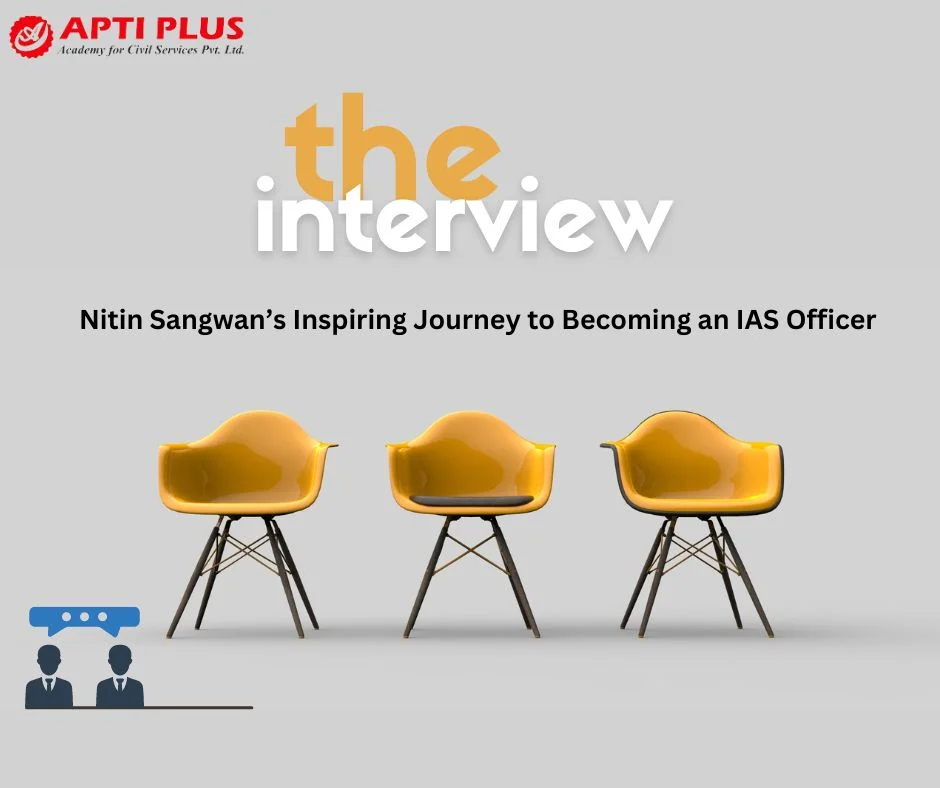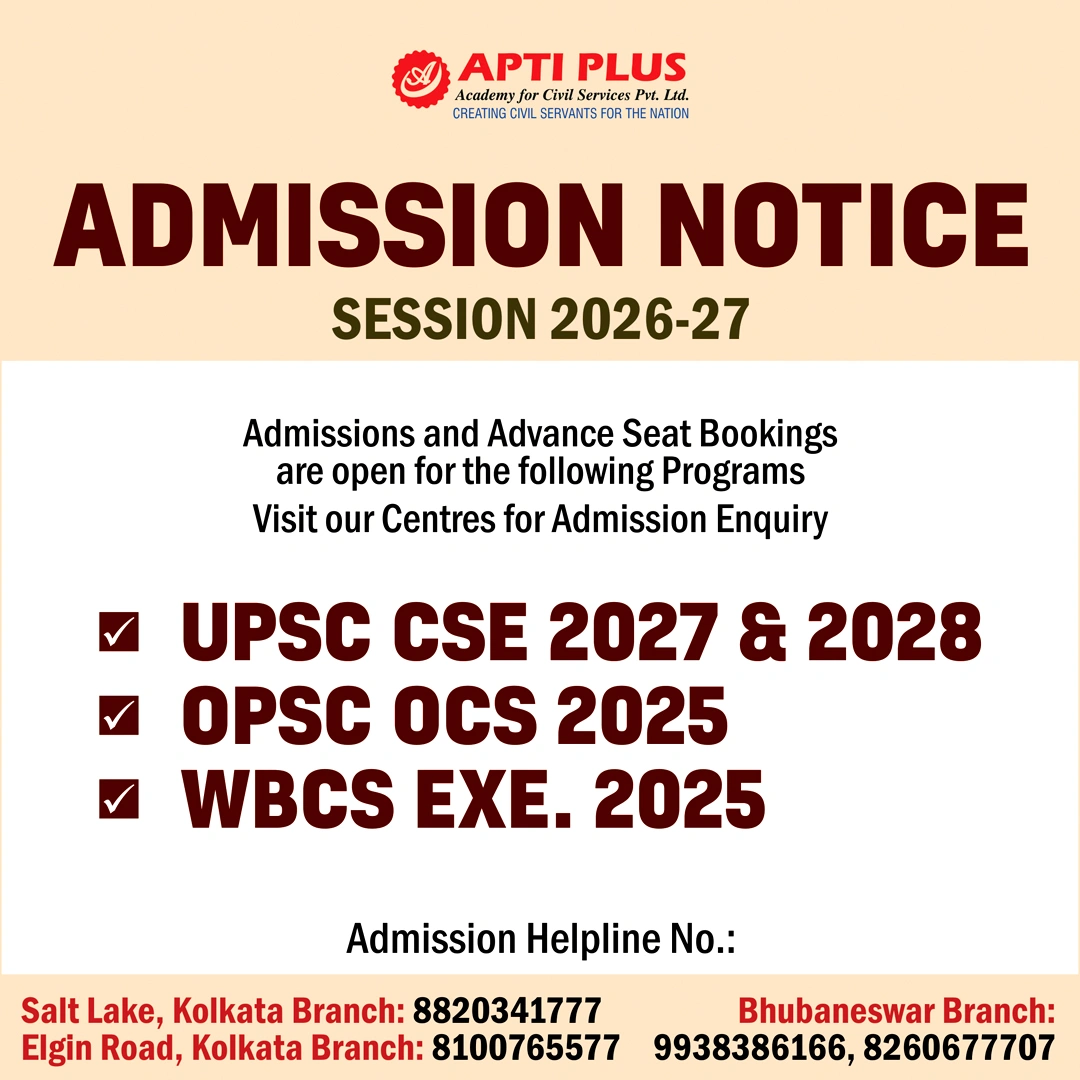An Ordinary Life | Nitin Sangwan’s Inspiring Journey to Becoming an IAS Officer
Nitin Sangwan’s memoir ‘An Ordinary Life’ chronicles his inspiring journey from a lower-middle class background riddled with struggles to clearing the prestigious UPSC exam in his second attempt and achieving his dream of becoming an IAS officer. The book provides an insightful look into Nitin’s early struggles, his UPSC preparation strategy, and his experience with the exam.
Early Struggles
Nitin grew up in a small town in Haryana in a lower-middle class family. He lost his father at a very young age due to lack of medical facilities, which meant his mother had to work as a teacher to support the family.
Growing up, Nitin studied in ordinary public schools where facilities were lacking. He had to work part-time even as a child to financially assist his family. This early exposure to hardship shaped his determination to succeed in life.
UPSC Obsession
After completing his graduation, Nitin decided to appear for the UPSC civil services exams to become an IAS officer. He saw it as his ticket to a better life and a way to support his family.
Cracking the UPSC became an obsession for Nitin. He was deeply motivated to put in the hard work required to clear the exam, which is known to be extremely competitive with lakhs of aspirants vying for just hundreds of seats.
Preparation Strategy
Nitin developed a meticulous preparation strategy, centred around understanding the UPSC exam pattern and syllabus thoroughly. Here are some highlights:
- Maintained a disciplined routine – studied 8-10 hours daily.
- Focused on reading newspapers, general studies books daily and made extensive notes.
- Studied previous years’ question papers to identify focus areas.
- Practiced writing long answers to build writing skills needed for main exam.
- Did SWOT (Strengths, Weaknesses, Opportunities, and Threats) analysis to understand his strengths and weaknesses.
The UPSC Exam Experience
- Nitin appeared for the UPSC prelims in his first attempt but unfortunately could not clear it. However, he did not let this failure deter him. He continued his preparations and finally managed to clear the prelims in his second attempt.
- In the main exam, Nitin managed to perform well consistently in all the papers – essay, GS, and optional. He credits his practice of writing long answers with helping him tackle the main exam.
- Finally, Nitin also cleared the personality test, the final hurdle in this challenging journey. His in-depth preparation boosted his confidence during the interview.
- With determination, perseverance and the right strategy, Nitin was able to secure an all-India rank and achieve his dream of entering the civil services despite his humble background.
UPSC Topper Nitin Sangwan Speaks:
How did you feel when you came to know that your name is in the toppers list?
It was almost difficult to believe at first. But I was very happy that my hard work finally paid off.
Can you share a little bit about your background? (Family, School, College, Work etc.)
I was raised in a rural tiny town called Charkhi Dadri. My mother stays at home and my father works in finance. I have been married for four years, having actually begun my preparations at the time of my marriage. My daughter is three years old. There was no one in my social group who had passed the civil services exam, so I had no assistance. My schooling and graduation were also from mediocre institutions. But when I made the decision to write the CAT after graduating, that’s when I started really thinking about my academics. But I had not yet given thought to Civil Services. Eventually, I saw the preliminary test question paper from that year while I was a bench employee at Infosys.
How can you correlate your graduation background, work experience (if any) and entry into civil services?
I don’t believe it has anything to do with my employment history or degree. Suddenly, the thought of joining the civil service occurred to me. It wasn’t as if my dislike of my work or lack of education drove me to apply for public service. Instead, what drew me in was the nature of the work in the civil services. This is an exam that I would have written regardless of my employment status. I just tried my hardest to reach the objective I had set for myself.
Do you feel that the competition level of the UPSC Civil Services Exam is on a rise?
The civil services are not seeing as much competition as has occasionally been noted. Only half of the 7-8 lakh candidates make it to the preliminary round. Secondly, public jobs appear more promising in the event of an economic downturn. It is thus only cyclical. Thirdly, although the number of applicants from IITs, IIMs, and other institutions may be higher, their intake has also increased significantly. Given that only a small percentage of the several lakh people that apply for this exam actually end up in the civil services, it is not the ultimate destination. In other spheres of life, others are pursuing their passions and making the country proud.
Were you a person who studied alone? Or a person who favored the combined study approach?
I enjoy studying by myself. I get distracted when I study in groups. I occasionally did it to get a different perspective, but I preferred the independence of solitary preparation.
How did you keep yourself motivated for this one-year-long exam?
Support of my wife and family was crucial in that. I too was pretty determined to achieve the goal I set for myself. Being self-determined is the best medication for being motivated.
Any tips/pieces of advice especially for UPSC Civil Services Prelims?
First of all, thoroughly read the basic books a few times so that a base is created. Instead of reading too many books, read the standard books first. After that try to read as much as you can so that your coverage increases. Try to solve various objective type papers on GS – mocks, UPSC papers on various exams and so on.
Key Takeaways
It was almost difficult to believe at first. But I was very happy that my hard work finally paid off.
I was raised in a rural tiny town called Charkhi Dadri. My mother stays at home and my father works in finance. I have been married for four years, having actually begun my preparations at the time of my marriage. My daughter is three years old. There was no one in my social group who had passed the civil services exam, so I had no assistance. My schooling and graduation were also from mediocre institutions. But when I made the decision to write the CAT after graduating, that’s when I started really thinking about my academics. But I had not yet given thought to Civil Services. Eventually, I saw the preliminary test question paper from that year while I was a bench employee at Infosys.
I don’t believe it has anything to do with my employment history or degree. Suddenly, the thought of joining the civil service occurred to me. It wasn’t as if my dislike of my work or lack of education drove me to apply for public service. Instead, what drew me in was the nature of the work in the civil services. This is an exam that I would have written regardless of my employment status. I just tried my hardest to reach the objective I had set for myself.
The civil services are not seeing as much competition as has occasionally been noted. Only half of the 7-8 lakh candidates make it to the preliminary round. Secondly, public jobs appear more promising in the event of an economic downturn. It is thus only cyclical. Thirdly, although the number of applicants from IITs, IIMs, and other institutions may be higher, their intake has also increased significantly. Given that only a small percentage of the several lakh people that apply for this exam actually end up in the civil services, it is not the ultimate destination. In other spheres of life, others are pursuing their passions and making the country proud.
I enjoy studying by myself. I get distracted when I study in groups. I occasionally did it to get a different perspective, but I preferred the independence of solitary preparation.
Support of my wife and family was crucial in that. I too was pretty determined to achieve the goal I set for myself. Being self-determined is the best medication for being motivated.
First of all, thoroughly read the basic books a few times so that a base is created. Instead of reading too many books, read the standard books first. After that try to read as much as you can so that your coverage increases. Try to solve various objective type papers on GS – mocks, UPSC papers on various exams and so on.
Key Takeaways
Nitin’s story provides some key takeaways for UPSC aspirants:
With rigorous preparation and discipline, cracking UPSC is achievable even for those with ordinary backgrounds.
- Never let failures bog you down, persist until you succeed.
- Having in-depth knowledge about exam patterns and syllabus is crucial.
- Practicing writing long answers builds a key skill for the main exam.
- Analyzing strengths and weaknesses gives direction for preparation.
Conclusion
Nitin Sangwan’s memoir is an inspiring reminder that with determination and the right strategy, even ordinary people can achieve extraordinary feats. His story energizes UPSC aspirants to follow their dreams regardless of circumstances.
Choosing the right UPSC coaching institute is crucial for success in this highly competitive exam. Kolkata offers many reputed institutes with experienced faculties and comprehensive study programs. When selecting the best UPSC coaching in Kolkata, you must consider factors like teaching methodology, study material, test series, and past student results. Institutes like APTI PLUS Academy For Civil Services, Vajiramandravi, Nextias and Visionias have demonstrated consistent results over the years. Evaluate all options thoroughly – visit UPSC coaching institutes in Bhubaneswar & Kolkata, interact with faculty and current students before deciding. Select the institute in Kolkata that best fits your learning needs and style. With the right UPSC coaching guidance in Kolkata and hard work, you can realize your dream of becoming an IAS officer.



